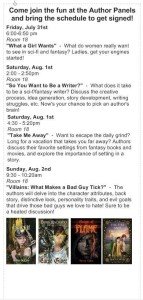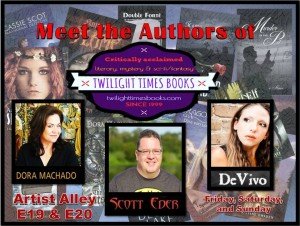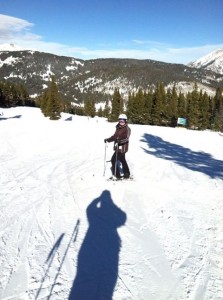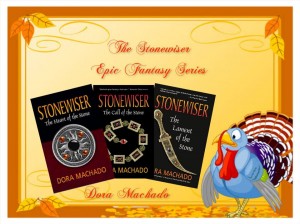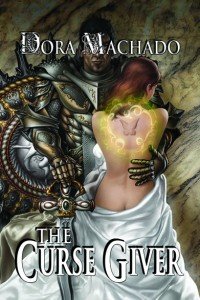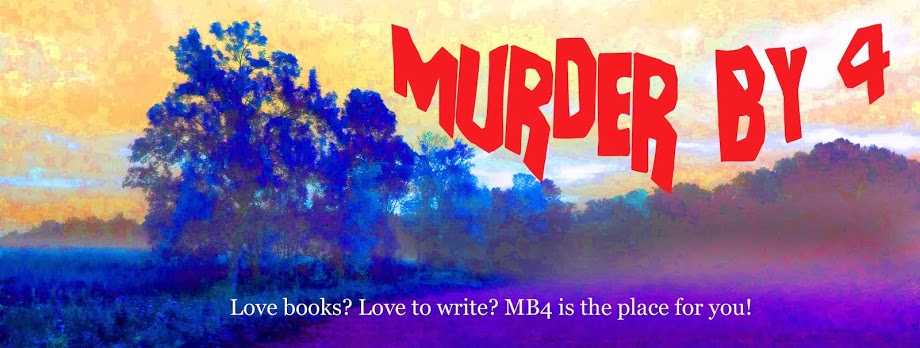Part Two of my Interview with Proofreader Extraordinaire Linda Au
By
Dora Machado
Please allow me to reintroduce my friend and proofreader extraordinaire, Linda Au, who shared her insights with us on my previous blog post, regarding the ins and outs of her profession and why an author wants a little OCD in his or her proofreader. With an incredible eye for detail, a questioning approach and an uncanny ability to find even the most cryptic of errors, Linda is an incredible asset to every project she tackles. I know. I’ve worked with her many times and benefited from her professional OCD, which as we’ve learned, doesn’t always extend to all other parts of her life, like cleaning the house.
In the second part of my interview with Linda, we tackle some of the hottest issues facing authors today. As the writing world changes and publishing gets both simpler and also more complicated, Linda shares her thoughts on what’s the real current state of spelling in the world and why proofreading matters . . . more than ever!
Enjoy!
D.
Welcome back, Linda. Writers today face so many hurdles and expenses. Why should having a manuscript professionally proofed be a priority?
In this rapidly evolving publishing world, everyone can call themselves writers by simply typing in a Word document, finishing with “The End,” and uploading it to Kindle Direct Publishing. Bingo! You’re published. Offer your “book” for free and you might even skyrocket to an impressive sales ranking for the day. But you’ll soon realize that even readers who download e-books that didn’t cost them a dime have standards. Their time is worth something. The general reading public is a lot smarter than the general writer-wannabe gives them credit for. They might download your first freebie book, but if it’s riddled with errors, typos, and bad formatting, they won’t care how good the story is (if it’s any good—and you can bet I’m skeptical about that). They won’t bother to download your second one.
The publishing slush pile used to be on the publisher’s desk. Then it moved to the agent’s desk. Now the whole slush pile is right out there for sale on Amazon.com. How can a serious writer stand out with all that competition? I’m convinced that what’s going to separate the men from the boys in the new publishing world is professionalism. Good writing. Good content editing. Good typesetting for print books and formatting for e-books. Good copy editing and proofreading.
By the way, as a side note: I am sometimes vexed that readers expect e-books to all be free or ridiculously cheap. A good, professional book still costs money to produce. The writer, editor, copy editor, publisher, and proofreader all still charge money for their services (and it’s a lot less than you think it is—none of us are retiring to the Caribbean any time soon). The only cost savings with e-books are with actual physical production: printing, binding, distribution. So yes, e-books should be cheaper, but good stories still cost money.
You are a writer too. What kinds of books do you write? Do you proofread your own books?
The two books I have out now are collections of humor essays, written under my maiden name/pen name of Linda M. Au. Although the essays are fun to write, switching gears and being funny in so many different little “stories” can feel burdensome when I’m putting one of the humor books together. I’m collecting ideas and essays for a third book, but I’ve got no personal deadline for it. Next up instead are a few of my NaNoWriMo novels, some of which have won awards (in whole or in part). Fiction is really my first love.
And yes, I do proofread my own books. (I also typeset them.) But I also run them through beta readers when they get close to being finished. That’s as much for content as for spelling and error-checks. Any problem a beta reader can point out helps me be better. I often cringe if it’s a typo or a missing word, of course, since that’s been my bread and butter for decades, but I’m relieved they’ve helped me be as good as I can be when I go to print.
What’s the hardest thing about working with writers?
The extremes in my clientele. It’s tough to have two very different clients at the same time. For instance, one writer might think she’s being helpful by throwing all sorts of formatting into her Word document manuscript, treating it almost like a layout program (which it’s not), or by learning just enough publishing jargon to be dangerous. Manuscript formatting has to be basic, especially if the next step is page layout or e-book formatting, both of which do not play nicely with overly formatted Word documents.
At the other extreme is the writer who still doesn’t seem to care if he or she spells words right or punctuates sentences properly. I’m not talking about a writer who struggles with these issues—I can appreciate the struggle and I really love helping such writers. But I don’t have a lot of tolerance for writers who insist that they are too busy being “creative” to learn the boring, nitpicky details of how to punctuate or spell. To me, that would be like a carpenter saying he’s too busy trying to create a beautiful rocking chair to learn how to use a hammer and saw.
If you’re a writer, words and grammar and punctuation are your tools. You need to learn to use them properly if you want to be taken seriously. And, I guarantee you that, once you learn these things, the creativity will still be there. In fact, it will be freed up and much more accessible to your readers because the mechanics will have become second nature.
In your opinion, what’s the current state of spelling in the world?
I think texting is a tool of the devil.
Seriously, I think that text-messaging has its place but has greatly reduced the regard for spelling conventions. I do writing coach work for eighth graders, and I see a lot of them slipping into text-messaging language in their essays: “ur” or “u” … stuff like that. They don’t even realize they’ve done it until I point it out.
I realize that language is fluid, and it’s a living thing, blah blah blah. But, there’s a big difference between language changing for practical reasons (such as “Google” becoming a verb) and language changing because too many people got lazy and misspelled a word or phrase for so long that the powers that be gave up (such as “alright” instead of “all right” slowly becoming more acceptable, though it’s not actually correct yet). Language changes that come from a lazy, uneducated populace bother me. It’s not quite the downfall of civilization, but I bet every civilization that fell had already started mistaking “its” for “it’s.”
Why will proofreading matter in the future?
As indie publishing/self-publishing becomes the norm (and it’s careening headlong in that direction already), what’s going to set the professionals apart will be their continued attention to detail and their pride in their work. And that has to include the use of the language. Not just pretty words, but properly spelled, properly punctuated pretty words. After all, writers are selling their ideas, expressed through their words. Why wouldn’t they want them to go out into the world as polished as they can be?
What’s your best proofreading advice for authors everywhere?
If you have to get yourself a grammar textbook or a copy of the Chicago Manual of Style, do it. If your first experience with a proofreader turned up ongoing issues and concerns—words you habitually spell incorrectly or grammar or punctuation issues you still don’t get right—then study and learn. It’s difficult to learn creativity or imagination, but it’s relatively easy to learn grammar and punctuation.
But never think that referring to a textbook can replace actual proofreading. Your own eyes are too forgiving of those words you missed or misspelled. Someone else’s objective eyes just may catch them … and you’ll be a better writer for it.
Language is your only tool as a writer. Learn to use it properly, and you can write anything well.
Thank you so much for this interview, Linda. I really appreciate everything that you’ve shared with us. I had a lot of fun talking to you.
***
Linda’s short humor essays have garnered numerous awards. Two books of her humor essays, Head in the Sand…and other unpopular positions and Fork in the Road … and other pointless discussions, are currently available on Amazon.com and BN.com.
Linda has worked behind the scenes in publishing as a proofreader, copy editor, and typesetter since the late 1980s. She has worked with many independent authors, as well as publishers such as Carroll & Graf, Shoemaker & Hoard, Crown & Covenant Publications, Christian Publications (now WingSpread/Zur), Pegasus Books, and F+W Publications.
Facebook: https://www.facebook.com/pages/Author-Linda-M-Au/119278508108217
Twitter: https://twitter.com/LindaMAu
Blog/Web site: The Other Side of the Desk
LinkedIn: http://www.linkedin.com/in/austruck/
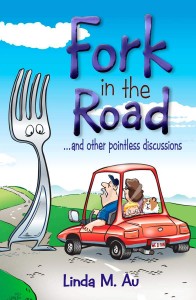
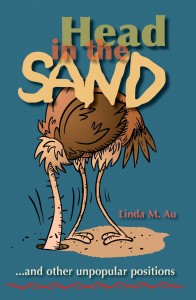
***
Dora Machado is the award winning author of the epic fantasy Stonewiser series and her newest novel, The Curse Giver, available from Twilight Times Books. She grew up in the Dominican Republic, where she developed a fascination for writing and a taste for Merengue. After a lifetime of straddling such compelling but different worlds, fantasy is a natural fit to her stories. She lives in Florida with her husband and three very opinionated cats.
To learn more about Dora Machado and her novels, visit her website at www.doramachado.com or contact her at [email protected].
Subscribe to her blog at http://www.doramachado.com/blog/ and sign up for her at newsletter at http://doramachado.com/newsletter.php,
Facebook and Twitter.
For a free excerpt of The Curse Giver, visit http://twilighttimesbooks.com/TheCurseGiver_ch1.html.

Amazon: : http://amzn.to/13oVu2P

